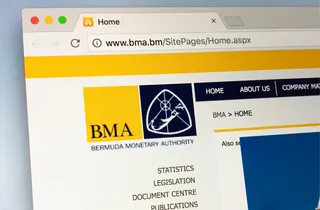
Bermuda insurers assuming almost a quarter of world cat risk
Bermuda insurers’ exposure to catastrophic risks increased to $193.7 billion in 2020, up 7.5% from $208.3bn the year before, according to the Bermuda Monetary Authority (BMA). The regulator also calculates that the sector’s global share of gross estimated potential loss from major cat perils increased by 3.0%, to 24.0% (from $181.9bn to $193.1bn).
Bermuda insurers are more exposed to Atlantic hurricane than any other peril, it finds, with a gross average modelled losses over all companies stretching from $817.1 million for one-in-50 year events up to $1.5bn for one-in-1,000 year events.
“The use of reinsurance is widespread and is generally more pronounced for lower frequency return periods for Atlantic,” the report adds.
The findings come from the second, standalone, annual Catastrophe Risk and Stress Testing Analysis Report published by the authority with analysis carried out by BMA staff. It is based on Class 3B and Class 4 insurers, the larger property and casualty commercial insurers in
Bermuda’s market, which are required to maintain statutory capital and surplus of at least 99% tail value at risk (TVaR) over a one-year time horizon.
Together the groups were responsible for net written premiums of $49.2 bn and $35.9bn of claims in 2020.
Despite the increased exposure, the regulator finds that the sector is in good health.
“The stress test results demonstrated that the Bermuda insurance market is resilient to potential adverse impacts from various global adverse financial market, cat and other underwriting loss scenarios,” its report states. “These results highlight the industry’s overall resilience and establish the insurers’ ability to absorb these unlikely potential large losses while still having capital remaining to settle policyholder obligations and meet regulatory capital requirements.”
While it does not directly assess the effect of the pandemic on insurers’ balance sheets, the BMA says it has taken a “proactive stance” to evaluating its impact on the sector.
“Overall, the COVID-19 impact on the Bermuda insurance market has been an ‘earnings’ event affecting the insurers’ income statements and not a capital event affecting their solvency positions,” it notes.
But it adds: “It should be noted, however, that some insurance events, directly and indirectly, linked to the COVID-19 pandemic, are still unfolding, increasing the overall uncertainty associated with assessing the full impact of the pandemic on the sector. Accordingly, the authority emphasises to insurers the need to take prudent measures, including avoiding actions that significantly reduce liquidity and capital through until insurers have sufficient clarity as to the underwriting and financial exposure resulting from COVID-19.”

.jpg/r%5Bwidth%5D=320&r%5Bheight%5D=180/8420bad0-0758-11f1-8ebf-0d4ec3aa2bf2-Kathleen%20Faries_Artex_Shutterstock.webp)